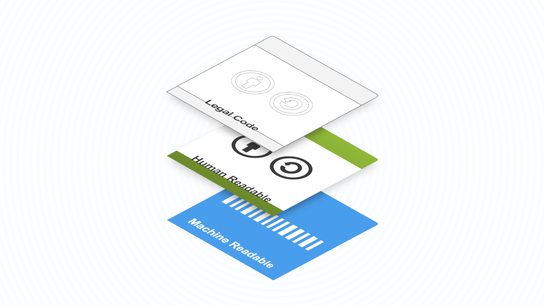I’ve decided to license most of the articles and many of the photos and illustrations on Ctrl blog under Creative Commons licenses. All in all I’m making hundreds of articles and hundreds of images from this blog available under more permissive licenses.
You may be familiar with Creative Commons licenses already as they’re fairly popular, especially in the free-culture circles of the web. Assuming you’ve meet the license’s terms you’re free to share, transform, remix, and redistribute the works licensed under a Creative Commons license. Creative Commons licenses come in a few different flavors with different usage terms. Every Creative Commons license require you to include a copyright statement from the author; include the title and link to the original content, and link to the license itself.
My decision to relicense Ctrl blog was also partly motivated by my investigation into copyright and the distributed peer-to-peer web where I concluded that Creative Commons licenses were the way to go for creators and readers alike.
Some readers may also remember that I’ve defended my copyright from content scrapers in the past. By licensing under Creative Commons I open myself up for more content scraping, and people and bots helping themselves to more of my works. However, I hope to get more legitimate and authorized copies of texts and images linking back to my website as the original source as a strategy to combat unauthorized plagiarists.
Update (): The license has been removed from old articles and new articles no longer carry Creative Commons licenses. Photos and images will remain under Creative Commons licenses. Check the bottom of each article page for information about licensing images on that page. Creative Commons licenses are non-revokable; meaning that you may continue to use content previously distributed under Creative Commons licenses under those lienses. You can even find and continue to use articles archived copies in the Internet Archive under Creative Commons licenses.
I’m offering different texts and images under different licenses with different license terms. Please make sure you individually check the license terms of each text and images you want to reuse or redistribute. Note that not every image on Ctrl blog is licensed under a Creative Commons license!
Licenses for individual articles were chosen based on their commercial value to me. For example, reviews and photos of discontinued products and services have been licensed under more permissive licenses whereas the most popular articles have more restrictive licenses.
You can even find higher-resolution versions of some photos in my Flickr photostream.
You’ll find license statements for each item on a page at the bottom of every page. The human readable licenses at the bottom of each page will need some further work, however. They’re a bit repetitive and hard to read as-is as they’re currently generated from Resource Description Framework (RDF) metadata statements.
Each page also contains detailed embedded machine-readable license information about the texts and images on the page in HTML+RDFa format. An RDFa parser will tell you the exact license and attribution requirements for each thing on a page. —and no, you can’t parse the license information using regular expressions (regex). Use an RDFa parser to build an RDF graph instead. Even multinational technology giants like Facebook and Twitter seem to be using regex parsing for RDFa, but they even get the basics wrong.
Please feel free to drop me an email if you use one of my images or texts anywhere. Especially if you translate any of my articles to another language! This is, of course, entirely optional as Creative Commons licenses don’t require you to ask permissions before redistribute, transform, translate, or find other uses for any of my Creative Commons licensed creations. As long as you comply with the attribution requirements and the terms of the license, of course!
